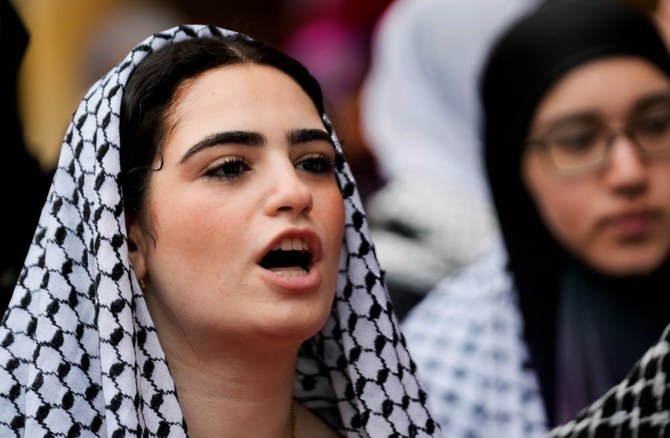
- ARAB NEWS
- 14 Jul 2025

BEIRUT: Lebanon’s Disaster Risk Management Unit announced that the total death toll from Israeli attacks since Oct. 8 has reached 438 people.
According to the latest report issued by the Lebanese Ministry of Health, eight children were among the dead and 75 children were among the 1,359 people injured since the escalation of hostilities.
The UN Children’s Fund expressed its concern over “the continuing hostilities in southern Lebanon that are taking a devastating toll on the population, forcing around 90,000 people, including 30,000 children, from their homes.”
UNICEF called for “an immediate ceasefire and the protection of children and civilians,” and indicated that “the increase in armed conflict has damaged infrastructure and civilian facilities, causing severe damage to basic services that children and families depend on, including nine water stations serving 100,000 people at least.
“More than 70 schools are currently closed, affecting around 20,000 students and significantly affecting their education. Around 23 healthcare facilities — serving 4,000 people — are closed due to the hostilities.”
UNICEF’s representative to Lebanon, Edouard Beigbeder, expressed the organization’s deep concern. “As the conflict impacting the south of Lebanon is in its seventh month, we are deeply alarmed by the situation of children and families who have been forced from their homes and the profound long-term impact the violence is taking on children’s safety, health, and access to education.
“As long as the situation remains unstable to this extent, more children will suffer,” Bigbeder warned. “Protection of children is an obligation under the International Humanitarian Law and every child deserves to be safe.”
In a statement, UNICEF indicated that before the outbreak of the conflict, basic services in Lebanon, including health and education systems, were in danger of collapsing after years of overwork. The unprecedented economic and financial crises that have hit the country since 2019 have exacerbated existing economic vulnerabilities.
Following the displacement of residents from the southern border region, UNICEF, in collaboration with its partners, has been providing “crucial aid to affected families seeking refuge in shelters. Emergency cash assistance, facilitated in partnership with the Ministry of Social Affairs, has been extended to meet the immediate needs of 85,000 individuals. Some displaced children have managed to resume their education in official schools, receiving essential supplies and transportation support.”
On Tuesday, hostilities persisted intermittently on the southern front between Hezbollah and the Israeli military.
An Israeli airstrike targeted a house along the Kafr Kila — Al-Adisa road, destroying it and causing severe damage to nearby properties and homes. Additional Israeli airstrikes struck homes and commercial establishments in the towns of Aita Al-Shaab, Yaroun, Jebbayn, the outskirts of Naqoura, Alma Al-Shaab, and Jabal Al-Labouneh.
In solidarity with Gaza and echoing student activism in US universities, Lebanese university students organized sit-ins on campus or nearby areas, brandishing Lebanese and Palestinian flags and demanding the liberation of Palestine and a cessation of attacks on southern Lebanon.
Students from the American University of Beirut and the Lebanese American University in Beirut called on their administrations “to boycott companies and institutions supporting Israel.”
Similar demonstrations unfolded in several private universities across Lebanon, including Beirut Arab University, Lebanese International University, Saint Joseph University, Haigazian University, and Holy Spirit University of Kaslik.